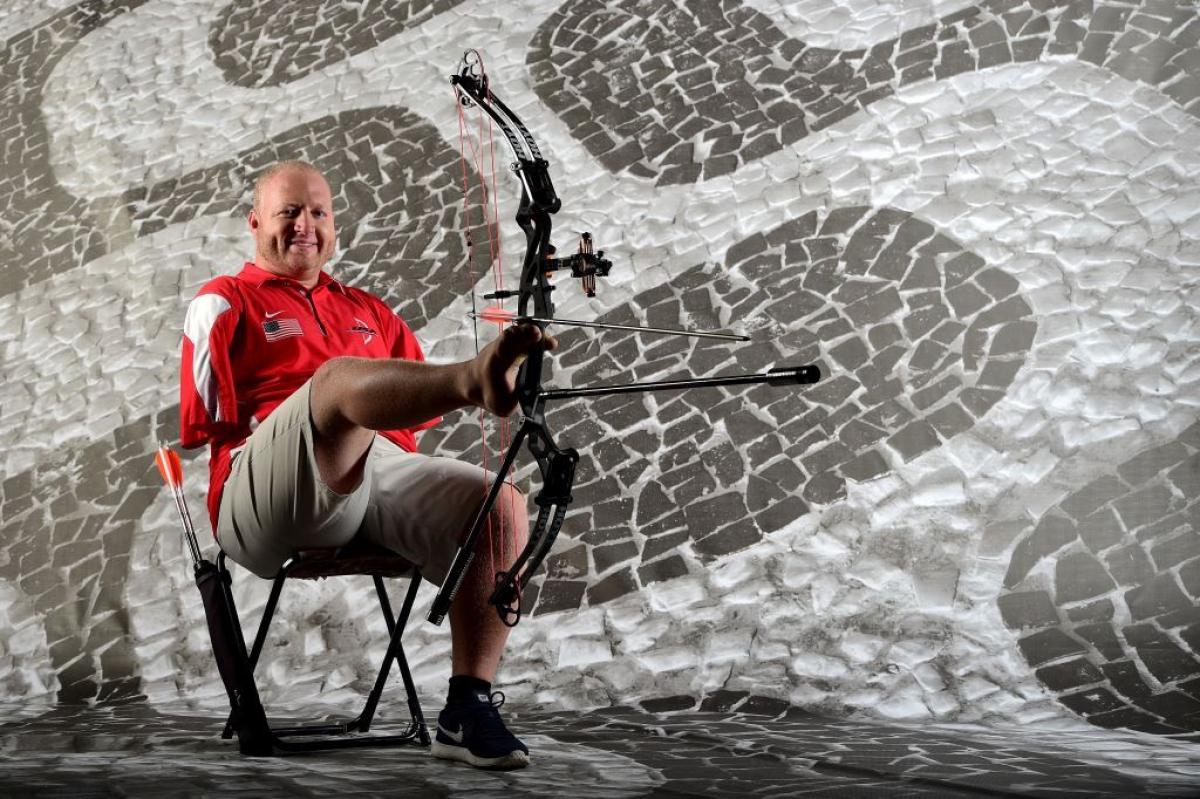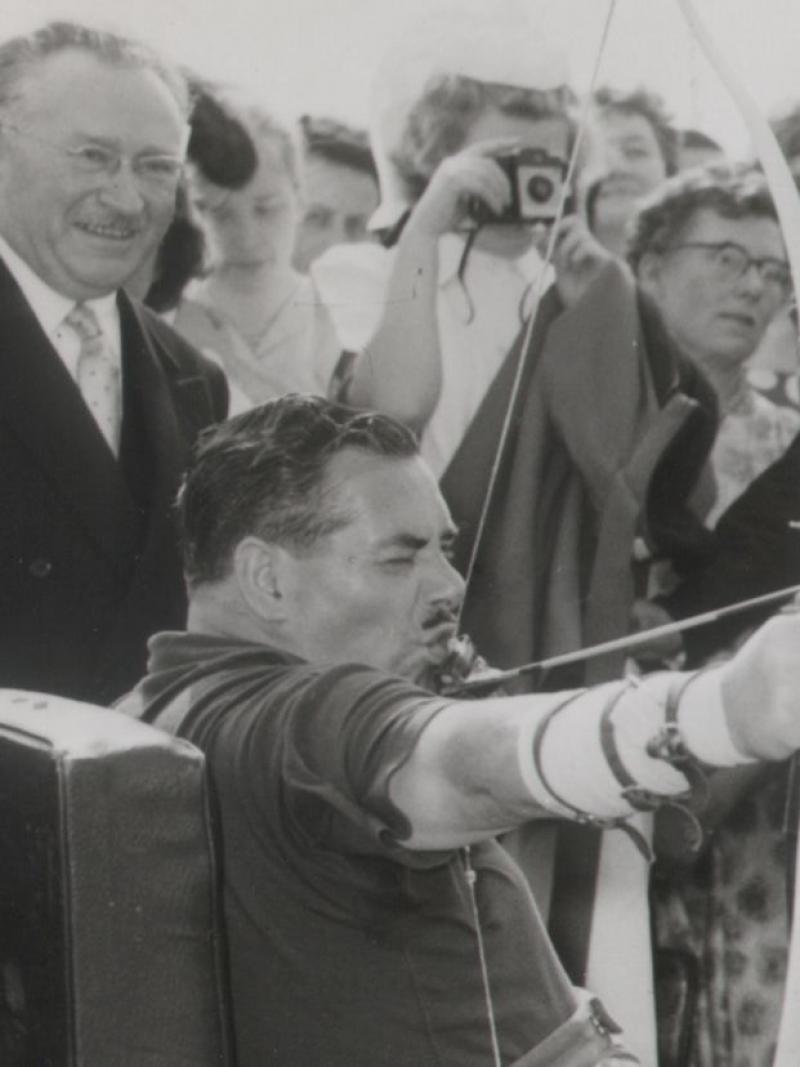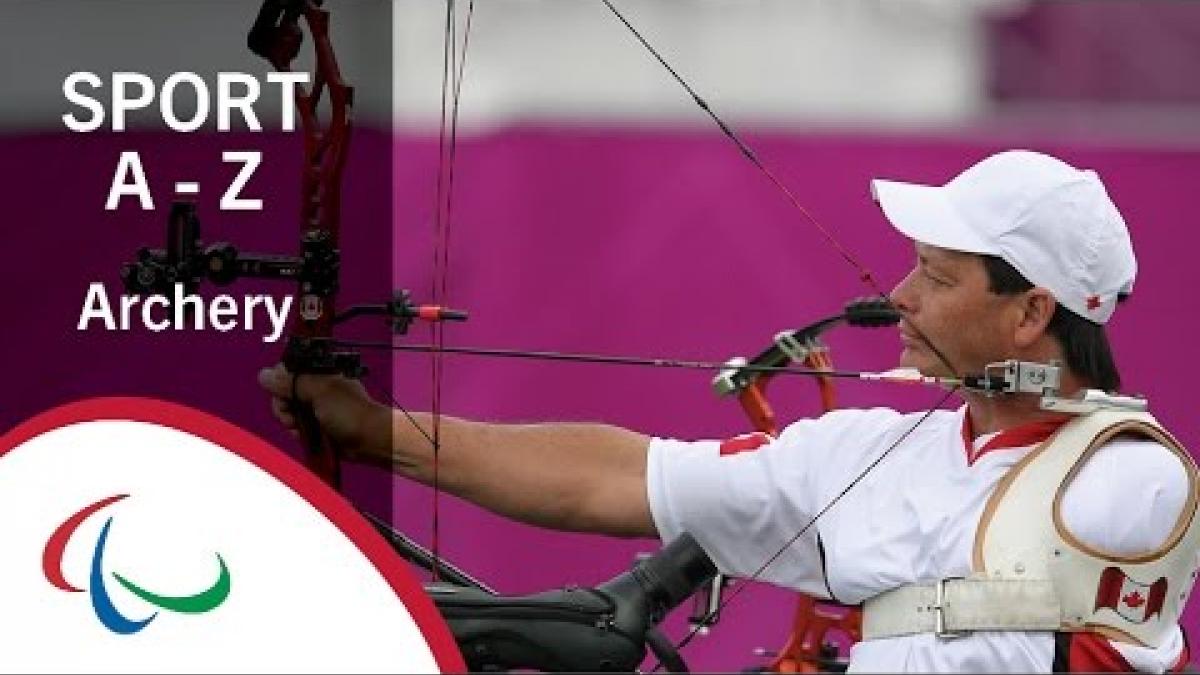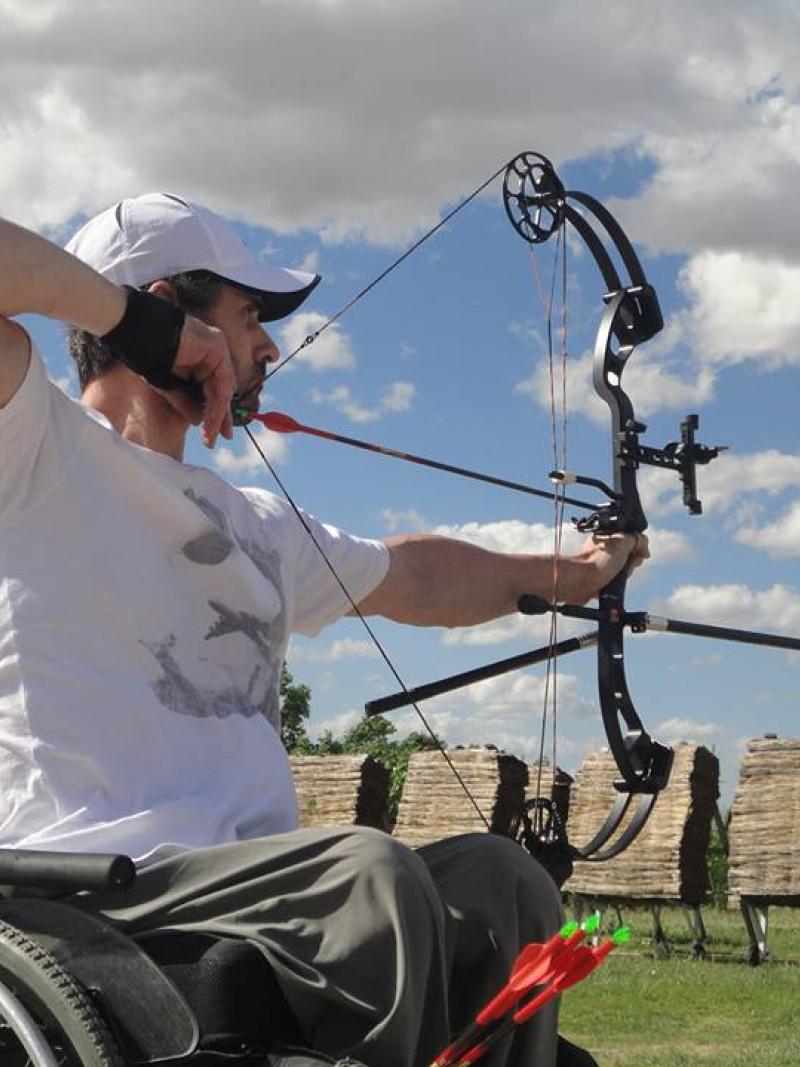Sport Week: Armless Archer aims high
Paralympic silver medallist Matt Stutzman is one of the most popular archers to watch heading into Rio 2016. 29 Apr 2016
Paralympic archer Matt Stutzman
“I look up to my parents because they had the discipline to raise me and did not give in to helping me even when they wanted too.”
There is little mystery on who the “Armless Archer” is heading into the Rio 2016 Paralympic Games. But that was not the case at London 2012.
The USA’s Matt Stutzman grabbed attention at London 2012 not just by how he shot, but with his accuracy and competitiveness which won him a silver medal in the open compound. He followed that up with silver in the Toronto 2015 Parapan American Games in the same event, and gold in the team event at the 2015 World Championships in Donaueschingen, Germany.
The Armless Archer’s name is out there. But Stutzman wants more.
“In London, nobody knew who I was. I wanted to show the world who Matt Stutzman is,” said Stutzman, who gave himself the nickname. “Now, I want to set world records and beat everyone.”
Last December, Stutzman broke the Guinness World Record for the farthest accurate distance – men’s archery at 283.47 meters. He continues to think of new ways to train.
Once, in an attempt to recreate the adrenaline effect of the Paralympics, Stutzman decided to sky dive and then shoot an arrow to see if he could hit his target. He did.
The challenges and training methods for Rio 2016 may get more creative as he continues to think outside the box.
Such creativity might stem from the adaptations he made growing up.
The 33-year-old father of three boys was born without arms, a medical event that happens to one in 350,000 people.
Stutzman’s biological parents put him up for adoption shortly after his birth because they were overwhelmed by the prospect of raising a boy without arms. His adoptive parents took him into their family, and Stutzman grew accustomed to life on a farm as one of eight children. His new parents taught him to fend for himself whether that meant tying his own shoes, playing the guitar, or doing chores like lugging around five gallon buckets of feed to the calves.
“My parents taught me to think outside of the box,” he said. “I look up to my parents because they had the discipline to raise me and did not give in to helping me even when they wanted too.”
Stutzman found a way to do everything on his own, from brushing his teeth to mowing the lawn.
He can make light of his impairment, pretending he uses a wristwatch and simply laughing when asked if raising three boys is a “handful.”
But it was not always easy. His biggest struggle came when he was a teenager, excited to finally get his drivers license and have freedom to go out on his own.
What he thought would be a simple test where he could prove how his method worked turned into a two-year battle for the power to drive.
“It’s during this time that I got really upset at the world,” Stutzman said. “I felt like no one would accept me for who I was and I started to act out.”
These negative feelings came back years later when he was married with children. He did not have a job so he stayed home, and his wife was the primary caregiver for the family.
“That didn’t sit well for me,” Stutzman said. “I wanted to do more. I needed a way to put food on the table.”
He hatched a plan, which involved convincing his wife to skip a month’s rent payment so they could buy a bow. Stutzman was always an outdoorsy person and had learned to hunt before. He wanted to hunt deer that they could eat during the winter.
He was able to get three deer that winter, but knew his abilities could improve.
So Stutzman tried to practice, but when he googled “shooting an arrow without hands,” the results were non-existent. He studied the way able-bodied archers moved and mimicked their motions with his legs.
When they moved their right hand, he would move his left foot, and on and on. He used these videos as inspiration until he was able to develop his own method.
From the seated position, he would use his left foot to put the arrow in place, hold the bow with his right toes, and set it on his right shoulder with a mechanical release aid.
Then Stutzman would draw the bow back with his right foot, triggering it beneath his jawbone. He would draw his jaw backwards and release the bow with his mouth.
This new method combined with Stutzman’s work ethic contributed to quick success. He started to compete and win. The whirlwind of events propelled him to London 2012.
After also setting a Guinness world record, he is missing one title that can add to his legacy: Paralympic gold.
On Friday (29 April), Stutzman will be answering questions on Facebook, beginning at 10 a.m. (PDT), 12 p.m. (CDT), 7 p.m. (CEST). Post your questions using the hashtag #AskMatt.
Editor’s note: Each sport on the Rio 2016 Paralympic programme will have a dedicated week of featured content published on paralympic.org. Every week a new sport will be featured and the series will run until September’s Games, helping the public understand more about the 22 sports being contested in Rio.
__
Sport fans from around the world can now buy their Paralympic tickets for Rio 2016 from authorised ticket resellers (ATRs).
The IPC’s Global ATR is Jet Set Sports, and Rio 2016 tickets and packages can be purchased on the CoSport website.
Residents of Brazil can buy 2016 Paralympics tickets directly from the Rio 2016 website.








